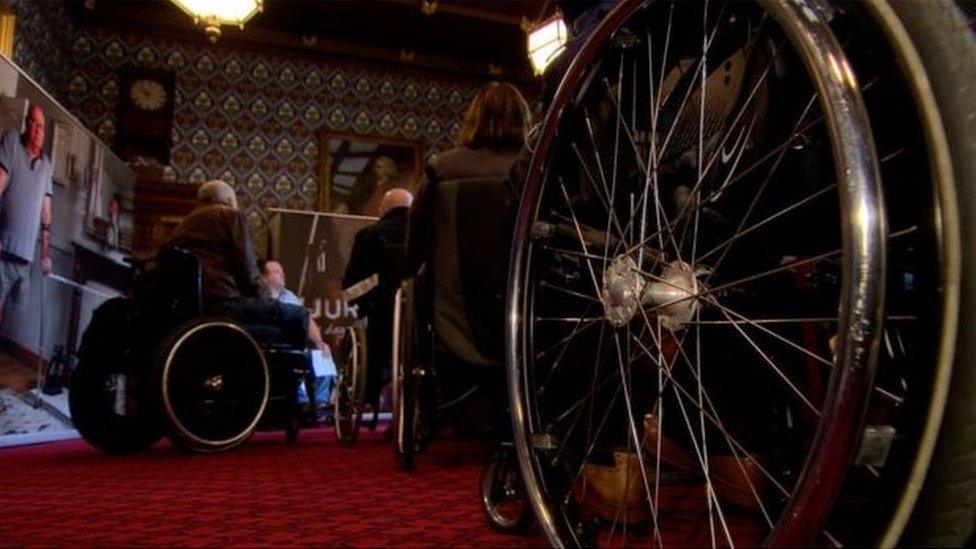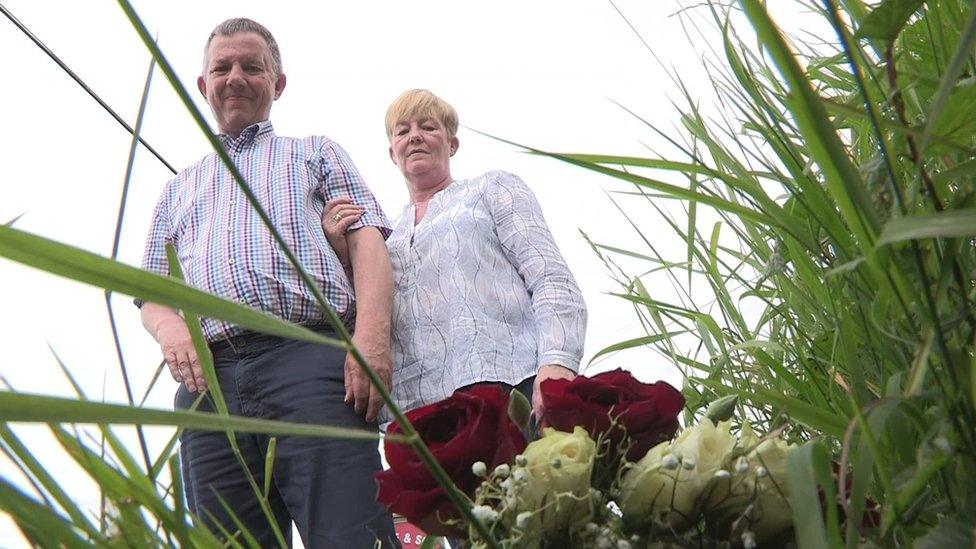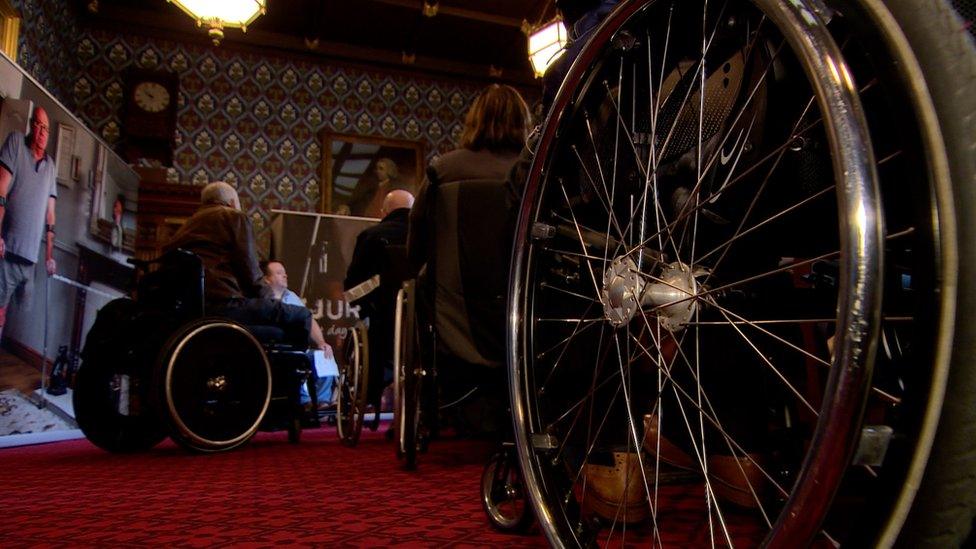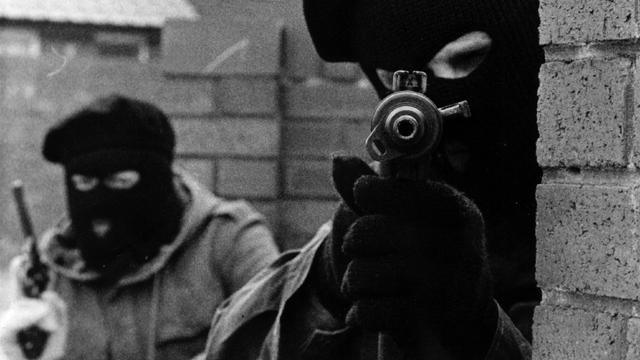Victims' pension: 'Through no fault of their own' to be guiding principle
- Published

The victims commissioner has advised those badly injured in the Troubles should be able to apply for a pension - including those hurt carrying out attacks
A Troubles-related pension should apply to those who have suffered through no fault of their own and not at their own hand, a government minister has said.
Northern Ireland Office minister Lord Duncan was responding to Lord Hain.
He wants a Troubles pension to be added to the Northern Ireland Bill being fast tracked through Parliament.
The NI victims' commissioner has said those badly hurt in the Troubles should be able to apply for a pension, including those who staged attacks.
Lord Hain said he wanted the words "through no fault of their own" on the face of the Bill.
But he was told that was not sufficiently legally precise.
Replying for the government in the House of Lords, Lord Duncan said: "I am very happy to confirm for the record that the intent and purpose of through no fault of their own is the principal criteria by which we will ensure victims will secure their pension.
"We will also ensure that all eligibility criteria procedures abide by the through no fault of their own principle."
'The money can do some good'
Lord Duncan said he hoped that his words would "stand alongside" any interpretation of the Bill as it passes through the House of Commons.
"This is to ensure that those who have suffered through no fault of their own, not by their own hand, that are survivors of a difficult and troubled time, are able to secure now a pension which will be backdated to December 2014," he said.
"So for some, I do hope there will be a serious sum. I hope that money can do some good."
Hours earlier it emerged that Victims Commissioner Judith Thompson advised the government that those badly injured in the Troubles should be able to apply for a pension - including those hurt while carrying out attacks.
The advice refers to the Victims and Survivors (NI) Order 2006, which makes no distinction between paramilitaries and victims.
She gave her advice to the government in May, but it has only now been made public, external.

Judith Thompson says the government cannot "kick this issue down the road any longer"
Ms Thompson acknowledges that there are political sensitivities around eligibility.
The legislation would help people who have been unable to work and earn their own pension due to severe and permanent physical and psychological injuries as a result of the conflict.
Last month, the government said it was examining the victims' commissioner's advice about the pensions.
More than 3,600 people were killed during three decades of sectarian conflict in Northern Ireland and a further 40,000 were injured.
Campaigners have been calling for some time for a pension for those severely injured during the Troubles to be introduced.
What does the advice say?
It states that recipients should be people who have been unable to work or earn their own pension due to a conflict-related injury.
It would also allow for the pension to be passed on to a spouse, dependent or carer for their lifetime.
It states that an independent assessor would look at applications and that payments should be made based on the severity of the impact of an individual's injury.
It recommends backdating payments to 2014, when the political parties and the government formally recognised the need for a pension through the signing of the Stormont House Agreement.
Who would be eligible to apply?
The advice refers to the Victims and Survivors (NI) Order 2006, which makes no distinction between paramilitaries who were killed or injured and victims.
Under the order, a victim is defined as:
Someone who has been physically or psychologically injured as a result of a conflict-related incident;
Someone who provides a substantial amount of care on a regular basis for a person who has been physically or psychologically injured as a result of a conflict-related incident;
Someone who has been bereaved as a result of a conflict-related incident.
The order has proved controversial, with failed attempts by unionist politicians to change the definition of a victim, external.
They argue that perpetrators of violence and those injured by their own hand should not be eligible for a pension.
However, other parties at Stormont have previously insisted there should be "no hierarchy of victims".
On Wednesday, the family of a former soldier left brain-damaged by a bomb 40 years ago said they will not accept a Troubles-related pension if injured ex-paramilitaries also receive one.
Grant Weir has needed full-time care since the bomb attack
What is likely to happen next?
The commissioner is urging Westminster to legislate for the pension in the absence of devolution at Stormont.
Northern Ireland has been without a government since the assembly collapsed in January 2017.
Several MPs and peers had tabled amendments relating to a pension to a Northern Ireland bill currently going through Parliament, but the government insists it is still considering the issue.
Mrs Thompson said the government "cannot kick this issue down the road any longer".
- Published17 July 2019

- Published27 June 2019

- Published22 November 2016

- Published2 June 2015
